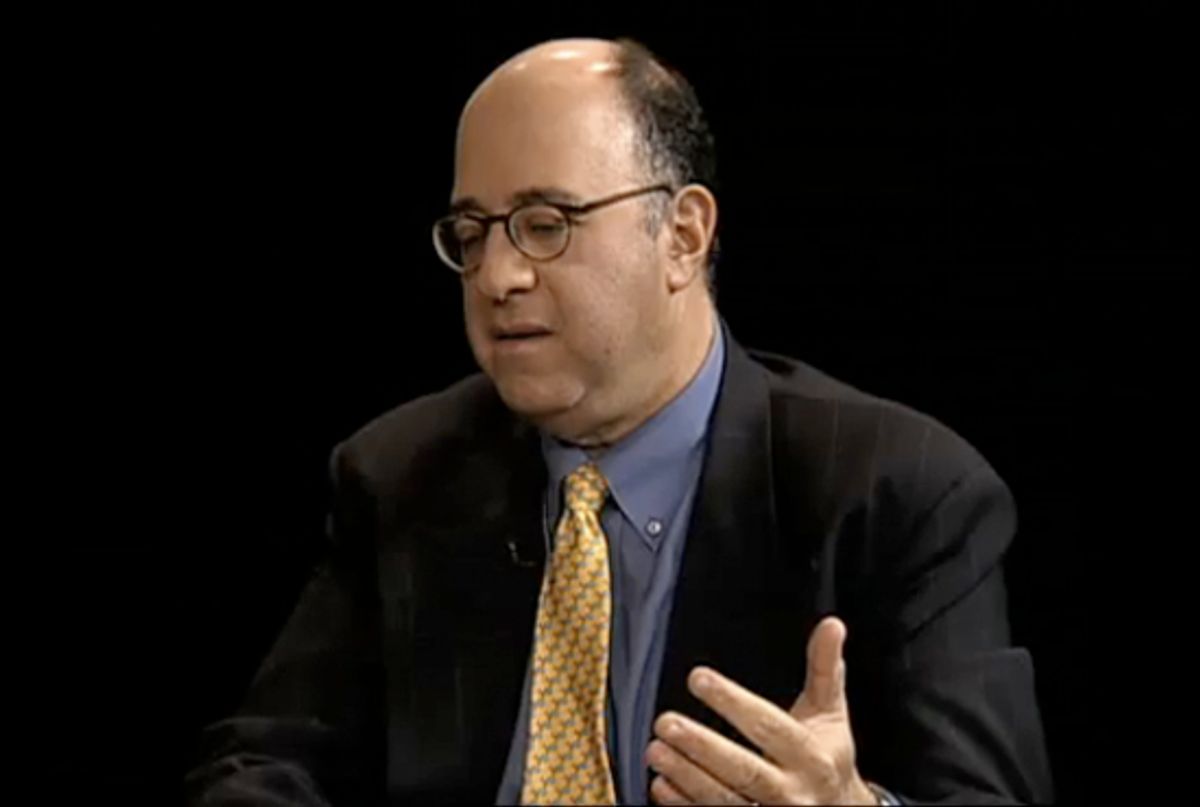 The flagship neoconservative magazine Commentary is coming under fire after the letting go of a writer who expressed support for gay marriage. The writer, D.G. Myers, was let go last Thursday after writing a post called “The Conservative Case for Gay Marriage,” though his editor says it had nothing to do with the content of the post. The editor maintains that Myers was not authorized to publish on politics without the permission of the magazine’s management, since he was explicitly a literary blogger.
The flagship neoconservative magazine Commentary is coming under fire after the letting go of a writer who expressed support for gay marriage. The writer, D.G. Myers, was let go last Thursday after writing a post called “The Conservative Case for Gay Marriage,” though his editor says it had nothing to do with the content of the post. The editor maintains that Myers was not authorized to publish on politics without the permission of the magazine’s management, since he was explicitly a literary blogger.
The debacle started after Mitt Romney’s election loss. Myers, a blogger on books for Commentary, published two pieces exploring whether the Republican Party should quit opposing gay marriage. It was the second post, “The Conservative Case for Gay Marriage,” that allegedly led to his firing.
In the past, Commentary had published essays against gay marriage.
“What I hold is that a strong case for gay marriage can be made according to conservative principles,” wrote Myers for Commentary. The editor of Commentary, John Podhoretz, then emailed Myers after the post was published to say that he was “terminated.” Myers reported the email on his personal blog.
“Whether I was fired for the substance of what I wrote or for violating the magazine’s procedures is unclear even to me, especially since my followup emails have gone unanswered,” Myers stated. “Since I do not have the right to quote the message in which Mr Podhoretz terminated me—he never called—I can only summarize his objections. If I understand him correctly, he considered my defense of gay marriage to be political, and thus inappropriate for a literary blog, and he could not understand why I did not seek prior approval for it.”
Myers went on to wonder whether he was fired for writing about gay marriage. “I think it’s equally naïve to think that I would have been sacked if I had used any other political topic as an occasion for literary and philosophical reflections—the topic of illegal immigration, for example. I’m the last one who could say for sure,” he wrote. Myers ended his post with praise for Podhoretz and Commentary for “giving me the opportunity to write Commentary’s literary blog and fiction chronicle...I consider the matter closed and shall have nothing further to say about it publicly.”
Podhoretz authored an explanation for Commentary that was published November 10. He says that the Myers’ termination--he was not fired, according to Podhoretz, since he was a freelancer--had nothing to do with the content of his post for gay marriage.
“What I did not like, and what I could not accept, was that David had decided unilaterally to convert Literary Commentary into a sociopolitical blog without a moment’s consultation. This I considered an uncollegial and insubordinate act,and I’m afraid it was not the first of these,” wrote Podhoretz. “This overstepping—coupled with other, more bureaucratic matters I’ve alluded to here—was not the cause of the parting of the ways between D.G. Myers and COMMENTARY. It was more like the last straw.”
Podhoretz also expounded on Commentary’s political position on gay marriage. “I was for a long time an opponent of gay marriage. I am not any longer—indeed, I am relieved that on Tuesday night citizens of four states chose freely to allow gay marriage within their borders rather than having such a thing imposed through judicial fiat. However, I am deeply respectful of those traditionalists who stand in opposition to it for profound reasons of conscience and faith and do not deserve to have the word ‘bigot’ hurled unjustly at them,” he wrote. “Nor is COMMENTARY institutionally hostile to gay marriage. Indeed, one of the foremost backers of gay-marriage initiatives in the United States, Paul E. Singer, is a valued and honored member of COMMENTARY’s board of directors.”



Shares